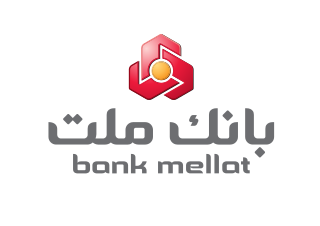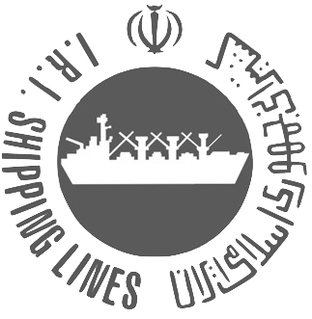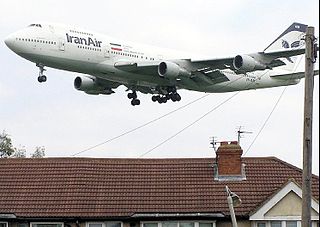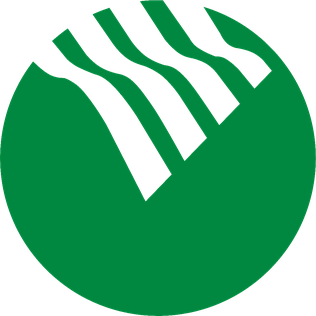External links
| State-owned | |
|---|---|
| Non-state-owned | |
| Foreign/overseas | |
| | This Asian bank-related article is a stub. You can help Wikipedia by expanding it. |
| Company type | Public Company |
|---|---|
| Industry | Banking Financial services Insurance |
| Founded | 29 April 2002 |
| Headquarters | London, United Kingdom |
Area served | Worldwide |
| Products | consumer banking, corporate banking, finance and insurance, investment banking, mortgage loans, private banking, private equity, savings, Securities, asset management, wealth management, Credit cards |
| Parent | Mellat Bank, Tejarat Bank |
| Website | persiabank |
Persia International Bank plc commenced trading in London on 29 April 2002, following the merger of the London branches of Bank Mellat and Bank Tejarat, which are joint shareholders in Persia International Bank. [1]
The United States Department of the Treasury mentioned Persia International in their 2008 watchlist of Iranian banks which may be trading in violation of UN Security Council Resolution 1803. [2]
On 6 September 2013, the European General Court in Luxembourg ruled to annul the European Union sanctions in place since 2010 against the bank on grounds of supporting the Iranian nuclear and missile programs, as EU governments had incorrectly assessed the facts and evidence. [3] [4]
Economic sanctions or embargoes are commercial and financial penalties applied by states or institutions against states, groups, or individuals. Economic sanctions are a form of coercion that attempts to get an actor to change its behavior through disruption in economic exchange. Sanctions can be intended to compel or deterrence.

Bank Mellat is a private Iranian bank. Its name means "Bank of the Nation". Bank Mellat was established in 1980, with a paid capital of Rials 33.5 billion as a merger of ten pre-revolution private banks, comprising Tehran, Dariush, Pars, Etebarat Taavoni & Tozie, Iran & Arab, Bein-al-melalie-Iran, Omran, Bimeh Iran, Tejarat Khareji Iran and Farhangian.

Bank Saderat Iran(BSI) (Persian: بانک صادرات ایران, Bank Sadârat Iran, lit. "Export Bank of Iran") is an Iranian multinational banking and financial services company headquartered in Tehran, Iran. It is Iran's largest bank. It was founded in Tehran in 1952 by the prominent Mofarrah and Bolurfrushan (also spelled Bolourforoushan) families, represented in the first board by Mohammad Ali Mofarrah and Mohammad Bolurfrushan and commenced operation on 13 November 1952 with a board of three directors and 20 employees.

United States sanctions are financial and trade restrictions imposed against individuals, entities, and jurisdictions whose actions contradict U.S. foreign policy or national security goals. Financial sanctions are primarily administered by the U.S. Department of the Treasury's Office of Foreign Assets Control (OFAC), while export controls are primarily administered by the U.S. Department of Commerce's Bureau of Industry and Security (BIS).

Iran–United Kingdom relations are the bilateral relations between the United Kingdom and Iran. Iran, which was called Persia by the West before 1935, has had political relations with England since the late Ilkhanate period when King Edward I of England sent Geoffrey of Langley to the Ilkhanid court to seek an alliance.

Iran–Italy relations are the diplomatic relations between the Islamic Republic of Iran and the Italian Republic.

VTB Bank is a Russian majority state-owned bank headquartered in various federal districts of Russia; its legal address is registered in St. Petersburg. As of 2022, the company's capital stock was mostly owned by three Russian agencies.

The Islamic Republic of Iran Shipping Line Group, commonly known by its business name IRISL Group, is a shipping line based in and owned by Iran. Its fleet comprises 115 ocean-going vessels with a total capacity of 3.3 million tons deadweight (DWT), with 87 being ocean-going vessels owned by IRISL and the remaining 28 ships being owned under the flags of subsidiary companies, including Khazar Shipping, Valfajr and Iran-India Shipping. They are manned by 6,000 personnel who work under the Iranian flag in the Caspian Sea, Persian Gulf, international waters and various ports of the world.
Bank Refah Kargaran, also known as Bank Refah, is one of Iran's major banks. Bank Refah, with its headquarters in Tehran, Iran, is a retail commercial bank owned and controlled by Social Security Organization of Iran. Bank Refah provides a range of products and services.

Following the Iranian Revolution, the United States has since 1979 applied various economic, trade, scientific and military sanctions against Iran. United States economic sanctions are administered by the Office of Foreign Assets Control (OFAC), an agency of the United States Department of the Treasury. As of 2017, United States sanctions against Iran include an embargo on dealings with the country by the United States, and a ban on selling aircraft and repair parts to Iranian aviation companies.

Serhiy Petrovych Klyuyev is a Ukrainian businessman and a former member of the Ukrainian Parliament.
Tay Za is a Burmese business tycoon and the Chairman of Htoo Group of Companies, Myanmar. He is a close associate of the country's former head of state, Than Shwe. He is the first Myanmar entrepreneur to appear on the cover of Forbes Asia and is the richest man in Myanmar.
Yassin Abdullah Kadi is a Saudi Arabian businessman. A multi-millionaire from Jeddah, Kadi trained as an architect in Chicago, Illinois. He is the son-in-law of Sheikh Ahmed Salah Jamjoom, a former Saudi Arabian government minister with close ties to the Saudi royal family.
There have been a number of international sanctions against Iran imposed by a number of countries, especially the United States, and international entities. Iran was the most sanctioned country in the world until it was surpassed by Russia, following Russia's invasion of neighboring Ukraine in February 2022.

European Union–Iran relations are the bilateral relations between Iran and the European Union (EU). The EU is Iran's largest trading partner, along with China and the United Arab Emirates. Trade with Iran is subject to the general EU import regime and the EU supports the goal of Iranian accession to the World Trade Organization (WTO). The EU has accused and criticized Iran for human rights violations, which led to diplomatic tensions, but both sides aim at improving and normalizing relations. Should Turkey's accession to the EU take place, Iran will border the European Union.

Tejarat Bank is an Iranian Bank.

Post Bank of Iran is an Iranian bank.

Andriy Petrovych Klyuyev, also spelled as Andrii Kliuiev, is a Ukrainian businessman and politician, who was ranked as 7th "Most influential person in Ukraine" in 2011 by Korrespondent.
A blocking statute is a law of one jurisdiction intended to hinder application there of a law made by a foreign jurisdiction. A blocking statute was proposed by the European Union in 1996 to nullify a US trade embargo on Cuba and sanctions related to Iran and Libya which affected countries trading with the US and with the named countries. The 1996 statute was not enacted as the disagreements were settled by other means.